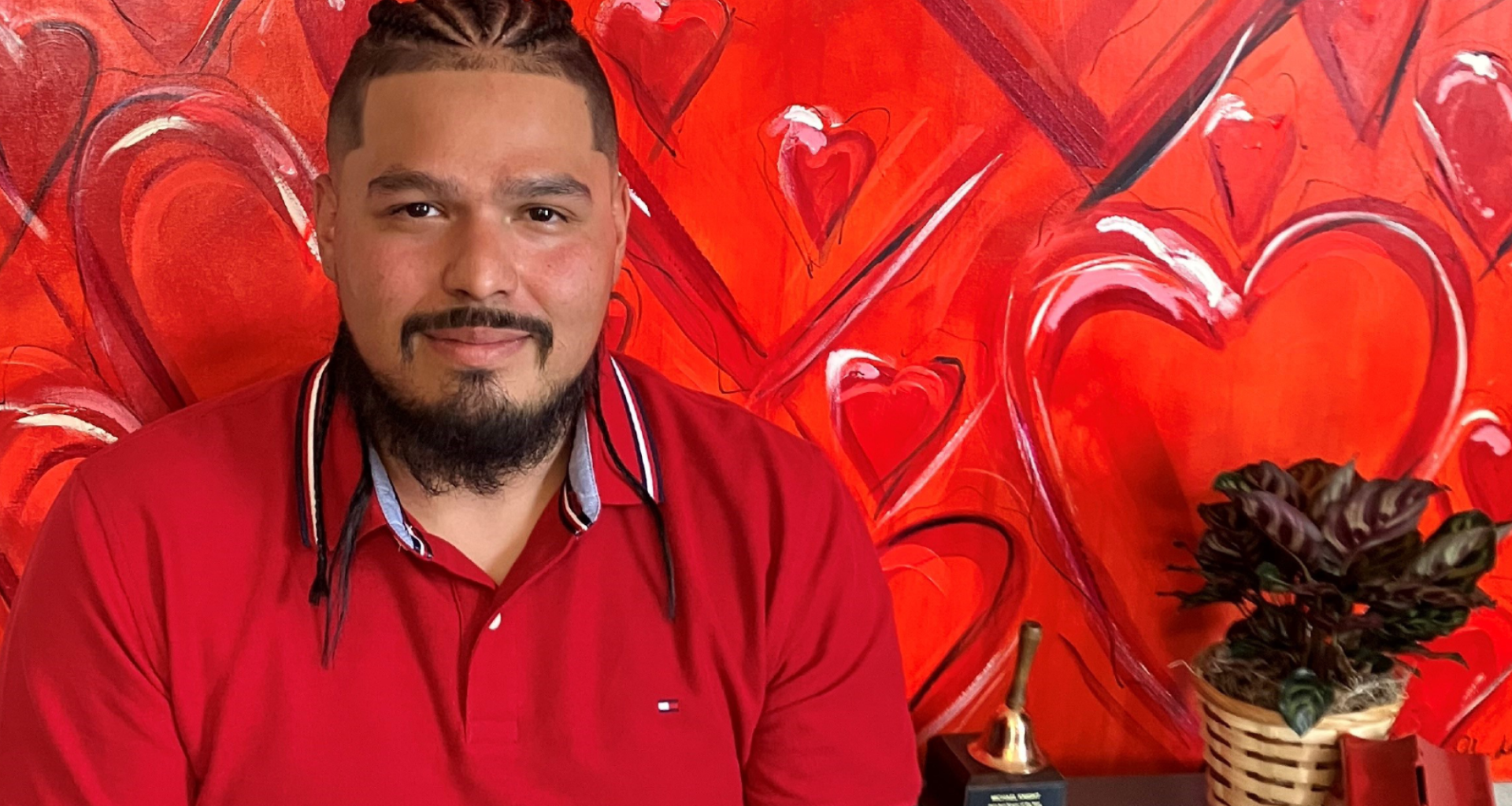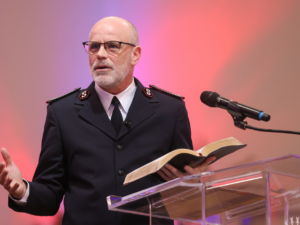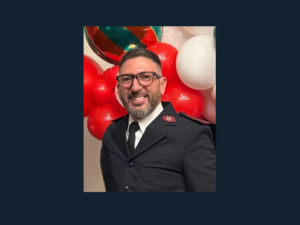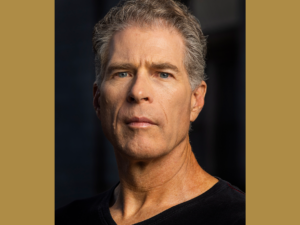The Salvation Army has a long history of serving those who have served our country.
It all began with donuts and coffee for soldiers during World War I, and it only grew from there. Today, The Salvation Army offers a range of veterans services, providing comfort, support, counseling and a home to thousands of veterans in need each year.
Did you know veterans make up 8 percent of the population of those experiencing homelessness in the U.S.?
In many cases, housing insecurity, post-traumatic stress disorder (PTSD), self-medication and substance abuse disorders can cause those who gave everything to lose everything.
It happened to Eric Yanes—but Eric didn’t give up hope.
And it wasn’t the end of his story.
Eric got connected to The Salvation Army Veteran Grants Per Diem program in Colorado Springs, Colorado, which provides individualized case management and furnished apartments for veterans and their families. Like many of The Salvation Army’s programs, it aims to address the immediate symptoms of food insecurity, poverty and homelessness but is also designed to help identify and treat its root cause and find healing.
In fact, this summer, Eric was named Hero of the Month by a local news station and participated in a wreath-laying ceremony at Arlington National Cemetery in Virginia with Salvation Army national leaders Commissioners Kenneth and Jolene Hodder.
So what happened along the way?
Well, this Veterans Day, allow me to introduce to you a veteran who will tell you he is embracing the magic of every mundane moment in his ordinary, beautiful life.
Show highlights include:
- What it means to Eric Yanes to be a U.S. veteran.
- Having served in both Iraq and Afghanistan, what life was like after discharge from active duty.
- How Eric discovered The Salvation Army, and what it was like to walk through the doors.
- Why he loves The Salvation Army today.
- His participation in a wreath-laying ceremony with Salvation Army national leaders Commissioners Kenneth and Jolene Hodder at Arlington National Cemetery.
- How Eric lives to spread hope today.
Listen and subscribe to the Do Gooders Podcast now. Below is a transcript of the episode, edited for readability. For more information on the people and ideas in the episode, see the links at the bottom of this post.
* * *
Eric Yanes: My name is Eric Yanes. I’m 33 years old. I am a U.S. Army veteran. I’m a father of three—a 10-year-old named Leonel, a four-year-old named Santiago, and a newborn two-month baby. His name is Sebastian. To explain myself, it’s more of a, I’m not, how can I say it? I’m not nothing new. I’m just one of the graduates of the program here at The Salvation Army here in Colorado Springs where they changed my life around with just one phone call. Ever since that moment, my life has changed.
Christin Thieme: Eric, what have you seen recently that gives you hope?
Eric Yanes: Recently what I’ve seen that gives me hope is that I’m allowed to continue here at The Salvation Army even though I graduated to provide more information of what people actually do here that saves lives. You know, I’m a graduate of the veteran program here. I was homeless. I was addicted to fentanyl and I lost everything. I lost my house. I lost my family. I lost myself. And this program here gave me the ability to re-spark my relationship with my wife. Reconnect with my 10-year-old who was living in Montana at the time. My four-year-old who, due to of my addiction, really lost his father for a good amount of almost a year. And with this program, it gave me everything back. It gave me my family, it gave me my kids, it gave me new hope to continue. Like I say, addiction isn’t just about being in addiction and staying clean. It’s also about what happens when you get clean.
Like I say, when you get clean, you’re starting fresh. You’re level with everyone. But then due to my actions, I was far behind. I was evicted. I had nowhere to live. I had no vehicle. I had no way to provide for my family. So that kind of made me feel even worse. It made me even kind of think if actually getting clean was worth it because I just had so much more problems that it’s just, it was a lot. And it was just sometimes at some moments it was just too much to bear. I would start second guessing myself as if, is it really worth it being clean? Is it really worth it trying to get ahead in life if right now I’m so far behind?
I’ve lost everything, I have nothing. Why should I continue? And it’s been a whirlwind ever since I decided to give the program a chance. And honestly, this is the best choice I’ve ever done so far in my life.
Christin Thieme: So if we back up a little bit, what does it mean to you to be a U.S. Army veteran?
Eric Yanes: To me, it means someone who was willing to risk their life for this country. No matter who and no matter what, I was willing to give my life to defend this country for anything. I did go to Iraq. I did go to Afghanistan. I have seen a lot of stuff over there, but I just somehow knew it was to protect everyone here, no matter their race, religion, political views or anything. It was just, I’m doing something for my country and it made me feel amazing.
Christin Thieme: What was it like for you when you returned as a veteran? You’re no longer in active duty. What was life like then?
Eric Yanes: Well, honestly life was… aimless. I had no ambition. I had nothing. I got out and I had nothing to do. It kind of did set something in me because I’m so used to the strictness. I’m so used to the discipline that when I got out, I had nothing to do. And it just, it left me without a purpose. And I think that’s what really affected me a lot.
Christin Thieme: And you talked about finding yourself in addiction, homelessness, evicted, losing so much as you said, what was the turning point for you when you realize I can’t keep this up?
Eric Yanes: Well for me it was more of multiple things that made me want to better myself. One, I was homeless during the winter, during the winter time. When it’s 10-15 degrees outside. Another thing is my family. I’m a very family-oriented person. My family disowned me. They didn’t want nothing to do with me and I was by myself. I did a lot of damage to my wife for all the lies and all the pain that I put her through, especially with our son with her. And also the wanting to get clean but I couldn’t get clean. That drug is so horrible. It just gives you this tunnel vision but the wrong tunnel vision. All you think about is your next hit, your next score. How long has it been since the last time you did it? It put me in a tunnel vision to where I lost every sense of myself. I lost who I was. I lost a caring person I was. I lost a loving person that I was. I lost a happy father that I was to my to my kids because all I kept thinking was that tunnel vision and once once I realized what I put everyone through especially my wife and kids. That’s when I decided you know what? It’s time to change and it was actually time for me to open up to my wife and let her know hey I need help. I come from a Hispanic family. We don’t share our emotions too much there’s a lot of machismo there and for me to ask someone for help is not allowed. It’s no one has problems, you just soak it up and move. But I finally had enough and I went and I finally got clean. I went to a rehabilitation center and then afterwards that’s when I didn’t know what to do. I was lost. I was clean, I was healthy, but I had nothing.
Christin Thieme: So how did you find The Salvation Army? How did you get connected?
Eric Yanes: So what had happened is after I got clean, the first person I called was my wife. And I told her, hey, you know, I need help. I need this. I need that. She helped me out every little that she did. But then I told her one day, was like, hey, let’s just go to the VA center here in Colorado Springs and let’s just ask for help.
How can I say it? I had no shame no more. I had no shame to go and ask for help. So I told my wife, let’s go. We go there, I do an intake form and then some gentleman, I wish I could remember his name, because he’s the one that started this for me, this journey. He put me through a lot of stuff, a lot of questionnaires, and then he actually referred me here to The Salvation Army. I didn’t know about these programs so this was a Friday like around 3 or 4 p.m., I called The Salvation Army and I’m impatient because I have nowhere to live. I have nothing. I literally, I think, like a sweater. That’s it. A sweater and some clothes and that’s it. I had nothing. And I called the front desk here at The Salvation Army here in Colorado Springs and this lady answered the phone.
She said, look, there’s nothing we can do right now because it’s really late. She’s like, why don’t you come in first thing Monday morning? I’m very impatient because I had nothing. I had nowhere to go. So I was like, yes, ma’am, that’s fine. I’ll be there. And before she hung up, she said, hey, we have this prayer board. I’m going to say a prayer for you and your family. And she asked me for my name. That’s never happened before. She wrote a prayer down, she put me and my family’s name up on the board and it just gave me some, I don’t know what it was, maybe it was just some sense of like, okay, you’ve made it this far, you can go till Monday. I get here Monday morning and my life just changed.
Christin Thieme: So what is that program? Can you share a little bit more about the one that you’re referring to and what happened when you walked through those doors then that Monday?
Eric Yanes: It’s the Veterans Grant Per Diem Program. That program, what it does is it provides housing, it provides education on financial budgeting, it provides you with counseling and when I came in on Monday morning, I said, hey, my name is Eric Yanes, I was referred from the VA. I had to wait a little bit, but they offered me some coffee and some cakes, and it was amazing. Because for me, coffee is the number one thing for me. So after that, a gentleman, he pulled me back here. I did an intake. He asked me a couple of questions of, what were my situation? And the biggest thing that kind of threw me off my guard was what was my religion? And I was kind of nervous to answer because, you know, that’s nothing that no one’s ever asked me. So, you know, I told him my religion, and he’s like, okay, that’s fine, without any hesitation, and he finished the paperwork. He told me, okay, look, this is what we have planned for you. This is who your case manager is gonna be. Come over here, I’ll show you where you’re gonna be living. They gave me a bed. They gave me bedding, sheets and blankets. They gave me a deodorant, shampoo, everything. They walked me over here to the food pantry to get some food. And from that moment on… It’s the best decision I’ve ever made in my life so far.
Christin Thieme: So now, how long has it been since you walked in there and can you give us a little picture of what’s your life today like?
Eric Yanes: So it’s been about three years since I walked in. And the thing about this program is that they don’t rush you. They are not telling you, you have to be on your feet within two months or you’re out. No, my case manager sat down with me, looked at my life, looked at my finances, looked at everything that I had going on, and we made a game plan. I was able to pay off my eviction, which was a big relief off my shoulders. They helped me learn how to finance my money because back then I couldn’t even hold $10 in my pocket. They told me how to budget. They showed me other ways to enjoy the simple things of life without having to go so extravagant. And man, they helped me get a job. They helped me if I needed transportation. Other veterans in this program were kind enough to be like, hey, if you ever need a ride, let me know. Hey, if you need this, let me know. I had a roommate in the apartment, and he would often get me dinners from the cafeteria. Just because I worked from 10 to like 9 p.m., I couldn’t go to the cafeteria because I was working. But he was kind enough to be like, hey, if you ever need anything, let me know. And I would tell him, hey, do you think you can give me some lunch and bring it back? And I’d get home and there’d be lunch right there for me. It’s not just a program of the people that work for The Salvation Army, it’s the other veterans here too. We all help each other or try to help each other.
Talking about it just makes me happy just because of what they did. So yeah after being able to save up some money, learn how to properly, you know, budget and learn how to handle day-to-day situations, I was finally able to graduate. I got a one-bedroom apartment with my wife and my son. This was Christmas two years ago.
They were so kind to help me out with mattress, with the couch, with the Christmas tree, with Christmas presents.
Christin Thieme: What was that Christmas like when you sat down under your own Christmas tree back with your family? What was that like?
Eric Yanes: You’re gonna make me cry right now. It was amazing. Being able to spend it with them after everything that I put them through, it was better than anything I could ask for, honestly. Just spending it with them, seeing my son open up his present and just seeing the happiness in him. It broke me down emotionally because even though my son is happy enjoying life, I can’t get out of my system what I did. And it hurt me a lot because I didn’t realize what I put everyone through. And just, man, to see him open up his present and just want to play with me and eat pancakes,, it’s something that I never thought I was ever gonna get again. It was better than anything I could ever ask for.
Christin Thieme: Can you share a little bit about like what’s the average week and what are those little moments that you just love so much now?
Eric Yanes: Average week is I wake up before anything, before I go to work, I wake up and I sit down in my apartment with my kids in their room and my wife sleeping there. I drink my coffee and I enjoy just the atmosphere, just every single second of just being in this apartment, just drinking my coffee. Knowing that they’re here sleeping peacefully, calmful, comfortably. Just enjoying the little things in life. It’s what I need every day. And I sit down and I just think of how blessed I am. How grateful I am just to have that just 30 minutes of just peace. And then just get up and go. Go to work. I work from six to five p.m. I pick my kids up from my mom’s house, which actually The Salvation Army helped me regenerate a relationship with them because I burned a lot of bridges. I burned a lot of bridges and man, I didn’t know what I did until after everything that happened.
I got to open up these bridges again and I got to start building these foundations little by little and making sure that this time there was no cracks in there. There was no lies. There was nothing. It’s just me, honest and truthful. And now my parents are in my life again and they get to see their grandkids. And when I picked them up after school, we go home. I make dinner because unfortunately my wife works from two to 10 p.m. So that leaves me with sometimes having to cook dinner because it’s a lot for her. So I cook my dinners and I have to, my kids are really nice. I don’t think they tell me the truth, but they always say, dad, that was amazing. And it makes me feel really good, but sometimes I’m just like, you guys can be honest. And every now and then they tell me, dad, can we just have pizza? I was like, So we eat dinner. So we eat dinner and then after that, we sit down and we watch wrestling. That is me and my boys’ biggest hobby right now is just wrestling.
So we sit down and we just enjoy this special bonding moment. And even to this day, it’s been almost two years that we do this nonstop every week. But to this day, I still sit down and I stare at them. just. And I just can’t believe I’m here. I just can’t believe I’m enjoying this. And after a while, they’ll start getting rambunctious and they’ll start wrestling and then they’ll start telling me, hey, dad, this wrestler’s better, this one is that, this one is that. And we have these little discussions and It’s just amazing.
Christin Thieme: I love it. Those are going to be some core memories for them. years late. Having had really not much of an idea of what The Salvation Army does, if somebody were to say to you today, why do you love The Salvation Army? What would be your response?
Eric Yanes: My response would be the reason I love The Salvation Army is because they don’t look at you and they don’t judge you. They don’t go off of your looks. They don’t go off of your gender. They don’t go off of your religious views. They just look at you as the person that you are. Doesn’t matter if you’re perfect or imperfect. Doesn’t matter if you’re so-and-so, they just want to help you out of the kindness of their hearts, out of the generosity that they give you. They truly just wanna help. And they, just they give you this feeling of a judgment-free zone of, you know, you’re homeless or you’re a drug addict, we shouldn’t trust you. No, they don’t look at you like that. All they see is a person in need of help. And they will go and they will have your back a thousand percent. They will find a way to help you. And that’s just something you don’t see out here in this world right now.
I wish more people knew about this program because I didn’t know about this program until I was brought here. And I wish I would have known about this. I really do. I think if I would have known earlier, it would have saved me and my family so much heartache, so much headaches. And man, The Salvation Army is just full of kind people that are just willing to help and it’s just amazing.
Christin Thieme: I know you’re still involved with The Salvation Army. Even this summer you participated in a wreath-laying ceremony with national leaders Commissioners Kenneth and Jolene Hodder at Arlington National Cemetery. What was that like?
Eric Yanes: It was a surreal moment. I never thought they would ever ask me to do that. I kind of feel like a little bit of a, what do they call it? Imposter syndrome. Just because I’m just me. I’m no one special. I was just a regular veteran in the program. There was nothing special that I did. There was nothing extravagant that I did. I just followed the program to the letter and because of that, it’s given me these opportunities to go do the wreath-laying ceremony. To be able to be on your podcast and talk a little bit about myself too, this is surreal.
Christin Thieme: I think more of us than any of us really feel that way, that I’m just me, right? And so I’m wondering, what’s your advice? This is kind of a last question here. For anybody listening who can identify that I’m just me, I don’t feel like I’ve done anything overly special. What’s your encouragement to get involved in some way in doing good today and in spreading hope?
Eric Yanes: My message is to just genuinely, truly, if you want to help someone, help someone. The littlest contribution you do can make a big impact. For me, it was literally calling on a Friday evening and having some lady put my name up, me and my family’s name on a prayer board. A small gesture like that just blew my mind.
So, what I would tell people is that the littlest, if you could just help out, the littlest that you can do doesn’t matter. It’s gonna change someone’s life. It might not feel like it, but trust me, as a veteran that was in this program, and this is all due to donations and contributions, it gave my kids their dad back. And it’s something that I can proudly say to my kids when they’re older that, you know, your dad, he might’ve messed up. He did bad things, but the people at The Salvation Army changed him. They gave you your dad back. They gave them their role model. And I still to this day don’t think that I am a good role model to them. I do feel like I’ve let them down a lot, but that’s the beautiful thing about this program is that they’re giving me the opportunity to show my kids that your dad for the rest of time will be making it up to you guys by helping you guys out with homework, by helping out The Salvation Army with coordinating the deliveries for Thanksgiving and Christmas. And that’s just something that I don’t think I could have accomplished by myself without everyone here.
So if you do want help or need help, please go to The Salvation Army. Go to your nearest Salvation Army. I promise you they will treat you like a human being. They won’t judge you. They won’t turn their back on you. They will be there for you. Even after three years of graduating the program of, well, three years from entering the program, they still help me out to this day. And there’s nothing that I won’t do to get this message out because it just means so much to me.
Christin Thieme: It’s something we all need, right? Just a little help from somebody. So thank you so much for being willing to share, Eric. I really appreciate it. And I’m so happy to hear how well you’re doing.
Eric Yanes: Yeah, thank you so much. Thank you for having me on this podcast and sorry about getting a little emotional there, but you know, this is just, it’s real for me. It’s my life now. It’s my mundane life that I love so much and that I would never give away and something that I cherish so much. And I’m so grateful I never gave up because like I said, there were moments where I even wondered if it was even worth continuing the battle of being a drug addict and being homeless. Man, The Salvation Army, they never gave up on me.
Additional resources:
- If you are one of the hopefuls, get on the list for the Do Good Digest, our free 3-minute weekly email newsletter used by more than 20,000 hopefuls like you for a quick pick-me-up in a busy day.
- If you are enjoying this show and want to support it, leave a rating and review wherever you listen to help new listeners hit play for the first time with more confidence.
- If you want to help The Salvation Army serve more than 24 million Americans in need each year, give today. Your gift of money, goods or time helps The Salvation Army do good all year in your community.
Listen and subscribe to The Do Gooders Podcast now.












